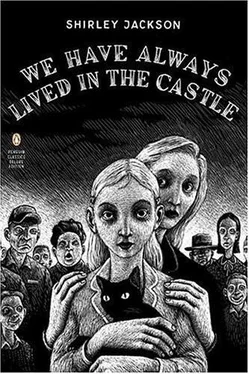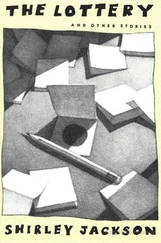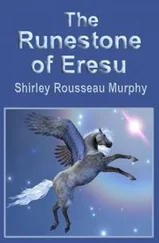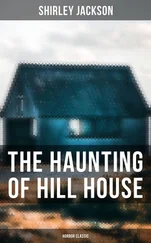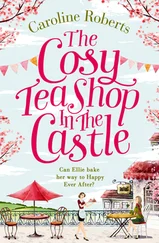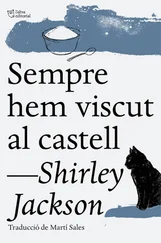Shirley Jackson - We Have Always Lived in the Castle
Здесь есть возможность читать онлайн «Shirley Jackson - We Have Always Lived in the Castle» весь текст электронной книги совершенно бесплатно (целиком полную версию без сокращений). В некоторых случаях можно слушать аудио, скачать через торрент в формате fb2 и присутствует краткое содержание. Город: New York, Год выпуска: 2006, ISBN: 2006, Издательство: Penguin Books, Жанр: Триллер, gothic_novel, на английском языке. Описание произведения, (предисловие) а так же отзывы посетителей доступны на портале библиотеки ЛибКат.
- Название:We Have Always Lived in the Castle
- Автор:
- Издательство:Penguin Books
- Жанр:
- Год:2006
- Город:New York
- ISBN:978-1-101-53065-8
- Рейтинг книги:3 / 5. Голосов: 1
-
Избранное:Добавить в избранное
- Отзывы:
-
Ваша оценка:
- 60
- 1
- 2
- 3
- 4
- 5
We Have Always Lived in the Castle: краткое содержание, описание и аннотация
Предлагаем к чтению аннотацию, описание, краткое содержание или предисловие (зависит от того, что написал сам автор книги «We Have Always Lived in the Castle»). Если вы не нашли необходимую информацию о книге — напишите в комментариях, мы постараемся отыскать её.
is a deliciously unsettling novel about a perverse, isolated, and possibly murderous family and the struggle that ensues when a cousin arrives at their estate.
We Have Always Lived in the Castle — читать онлайн бесплатно полную книгу (весь текст) целиком
Ниже представлен текст книги, разбитый по страницам. Система сохранения места последней прочитанной страницы, позволяет с удобством читать онлайн бесплатно книгу «We Have Always Lived in the Castle», без необходимости каждый раз заново искать на чём Вы остановились. Поставьте закладку, и сможете в любой момент перейти на страницу, на которой закончили чтение.
Интервал:
Закладка:
I found a nest of baby snakes near the creek and killed them all; I dislike snakes and Constance had never asked me not to. I was on my way back to the house when I found a very bad omen, one of the worst. My book nailed to a tree in the pine woods had fallen down. I decided that the nail had rusted away and the book—it was a little notebook of our father’s, where he used to record the names of people who owed him money, and people who ought, he thought, to do favors for him—was useless now as protection. I had wrapped it very thoroughly in heavy paper before nailing it to the tree, but the nail had rusted and it had fallen. I thought I had better destroy it, in case it was now actively bad, and bring something else out to the tree, perhaps a scarf of our mother’s, or a glove. It was really too late, although I did not know it then; he was already on his way to the house. By the time I found the book he had probably already left his suitcase in the post office and was asking directions. All Jonas and I knew then was that we were hungry, and we ran together back to the house, and came with the breeze into the kitchen.
“Did you really forget your boots?” Constance said. She tried to frown and then laughed. “Silly Merricat.”
“Jonas had no boots. It’s a wonderful day.”
“Perhaps tomorrow we’ll go to gather mushrooms.”
“Jonas and I are hungry today. ”
By then he was already walking through the village toward the black rock, with all of them watching him and wondering and whispering as he passed.
It was the last of our slow lovely days, although, as Uncle Julian would have pointed out, we never suspected it then. Constance and I had lunch, giggling and never knowing that while we were happy he was trying the locked gate, and peering down the path, and wandering the woods, shut out for a time by our father’s fence. The rain started while we sat in the kitchen, and we left the kitchen door open so we could watch the rain slanting past the doorway and washing the garden; Constance was pleased, the way any good gardener is pleased with rain. “We’ll see color out there soon,” she said.
“We’ll always be here together, won’t we, Constance?”
“Don’t you ever want to leave here, Merricat?”
“Where could we go?” I asked her. “What place would be better for us than this? Who wants us, outside? The world is full of terrible people.”
“I wonder sometimes.” She was very serious for a minute, and then she turned and smiled at me. “Don’t you worry, my Merricat. Nothing bad will happen.”
That must have been just about the minute he found the entrance and started up the driveway, hurrying in the rain, because I had only a minute or two left before I saw him. I might have used that minute or two for so many things: I might have warned Constance, somehow, or I might have thought of a new, safer, magic word, or I might have pushed the table across the kitchen doorway; as it happened, I played with my spoon, and looked at Jonas, and when Constance shivered I said, “I’ll get your sweater for you.” That was what brought me into the hall as he was coming up the steps. I saw him through the dining-room window and for a minute, chilled, I could not breathe. I knew the front door was locked; I thought of that first. “Constance,” I said softly, not moving, “there’s one outside. The kitchen door, quickly.” I thought she had heard me, because I heard her move in the kitchen, but Uncle Julian had called at that moment, and she went in to him, leaving the heart of our house unguarded. I ran to the front door and leaned against it and heard his steps outside. He knocked, quietly at first and then firmly, and I leaned against the door, feeling the knocks hit at me, knowing how close he was. I knew already that he was one of the bad ones; I had seen his face briefly and he was one of the bad ones, who go around and around the house, trying to get in, looking in the windows, pulling and poking and stealing souvenirs.
He knocked again, and then called out, “Constance? Constance?”
Well, they always knew her name. They knew her name and Uncle Julian’s name and how she wore her hair and the color of the three dresses she had to wear in court and how old she was and how she talked and moved and when they could they looked close in her face to see if she was crying. “I want to talk to Constance,” he said outside, the way they always did.
It had been a long time since any of them came, but I had not forgotten how they made me feel. At first, they were always there, waiting for Constance, just wanting to see her. “Look,” they said, nudging each other and pointing, “there she is, that one, that’s the one, Constance.” “Doesn’t look like a murderess, does she?” they told each other; “listen, see if you can get a picture of her when she shows again.” “Let’s just take some of these flowers,” they said comfortably to each other; “get a rock or something out of the garden, we can take it home to show the kids.”
“Constance?” he said outside. “Constance?” He knocked again. “I want to talk to Constance,” he said, “I have something important to say to her.”
They always had something important they wanted to tell Constance, whether they were pushing at the door or yelling outside or calling on the telephone or writing the terrible terrible letters. Sometimes they wanted Julian Blackwood, but they never asked for me. I had been sent to bed without my supper, I had not been allowed in the courtroom, no one had taken my picture. While they were looking at Constance in the courtroom I had been lying on the cot at the orphanage, staring at the ceiling, wishing they were all dead, waiting for Constance to come and take me home.
“Constance, can you hear me?” he called outside. “Please listen for just a minute.”
I wondered if he could hear me breathing on the inside of the door; I knew what he would do next. First he would back away from the house, sheltering his eyes from the rain, and look up at the windows upstairs, hoping to see a face looking down. Then he would start toward the side of the house, following the walk which was only supposed to be used by Constance and me. When he found the side door, which we never opened, he would knock there, calling Constance. Sometimes they went away when no one answered at either the front door or the side; the ones who were faintly embarrassed at being here at all and wished they had not bothered to come in the first place because there was really nothing to see and they could have saved their time or gone somewhere else—they usually hurried off when they found they were not going to get in to see Constance, but the stubborn ones, the ones I wished would die and lie there dead on the driveway, went around and around the house, trying every door and tapping on the windows. “We got a right to see her,” they used to shout, “she killed all those people, didn’t she?” They drove cars up to the steps and parked there. Most of them locked their cars carefully, making sure all the windows were shut, before they came to pound at the house and call to Constance. They had picnics on the lawn and took pictures of each other standing in front of the house and let their dogs run in the garden. They wrote their names on the walls and on the front door.
“Look,” he said outside, “you’ve got to let me in.”
I heard him go down the steps and knew he was looking up. The windows were all locked. The side door was locked. I knew better than to try to look out through the narrow glass panels on either side of the door; they always noticed even the slightest movement, and if I had even barely touched the dining-room drapes he would have been running at the house, shouting, “There she is, there she is.” I leaned against the front door and thought about opening it and finding him dead on the driveway.
Читать дальшеИнтервал:
Закладка:
Похожие книги на «We Have Always Lived in the Castle»
Представляем Вашему вниманию похожие книги на «We Have Always Lived in the Castle» списком для выбора. Мы отобрали схожую по названию и смыслу литературу в надежде предоставить читателям больше вариантов отыскать новые, интересные, ещё непрочитанные произведения.
Обсуждение, отзывы о книге «We Have Always Lived in the Castle» и просто собственные мнения читателей. Оставьте ваши комментарии, напишите, что Вы думаете о произведении, его смысле или главных героях. Укажите что конкретно понравилось, а что нет, и почему Вы так считаете.
